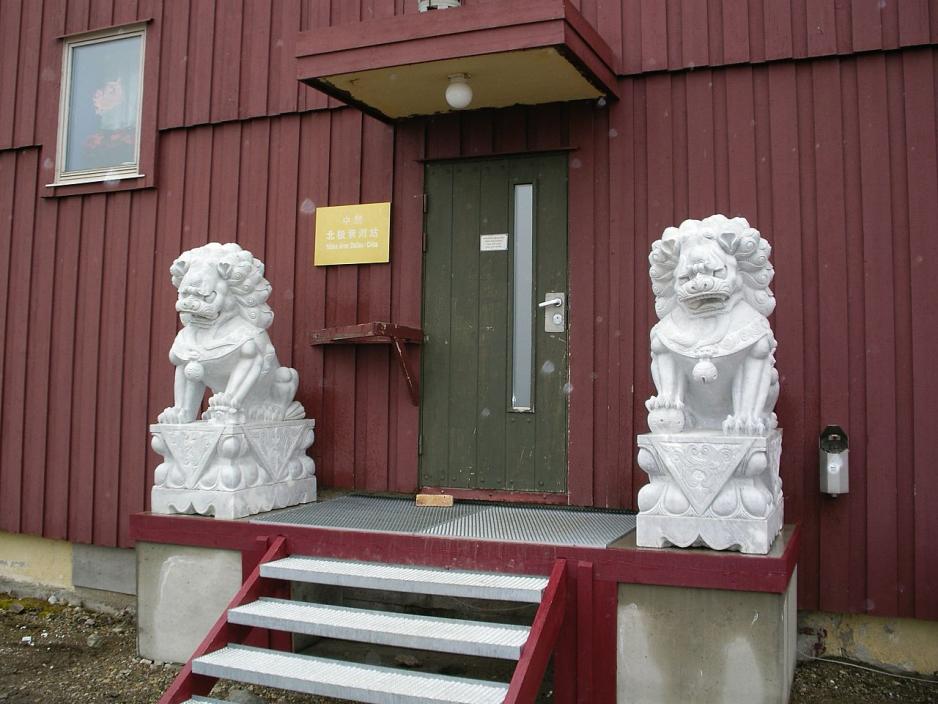Commentary: China is an indispensable partner in the Arctic

Science is one of China's interests in the Arctic, exemplified by the Chinese Research Station in Ny Ålesund, Svalbard. Frode Mellemvik argues that cooperation between Norway and China on Arctic issues will be essential in the years to come. Photo: Sphinx/Wikimedia Commons.
Next week, close to 2000 participants, including a large Chinese delegation, will gather in Tromsø for the Arctic Frontiers conference. After last month’s normalization of six years’ of icy relations between Norway and China, the Arctic is an ideal area for reconnecting on issues such as climate, research, business and education.
Next week, close to 2000 participants, including a large Chinese delegation, will gather in Tromsø for the Arctic Frontiers conference. After last month’s normalization of six years’ of icy relations between Norway and China, the Arctic is an ideal area for reconnecting on issues such as climate, research, business and education.
The Norwegian broadcaster NRK reports that Arctic Frontiers in Tromsø will welcome the largest Chinese delegation ever to attend the conference. Bilateral talks between Chinese and Norwegian representatives are scheduled to take place on the margins of the conference. As someone who has worked to support Norway’s international cooperation on Arctic issues for the last decade, I am delighted to see how Arctic Frontiers is able to create a forum where Norway and China can explore our shared interests in the Arctic.
There is no doubt that China has become a major stakeholder in the Arctic. China’s involvement will be essential to helping secure a prosperous and sustainable future for the Arctic region. China can have a tremendous impact when it comes to halting climate change, bolster Arctic science, and investing in technology, business and industry that will benefit the region.
Ever since Norwegian Foreign Minister Børge Brende announced in December that Sino-Norwegian relations are restored to normal, the efforts to build partnerships can progress in earnest.
Fortunately, we do not have to start from scratch.
Continuous dialogue
A number of Norwegian institutions have maintained dialogue with their Chinese counterparts, despite the freeze in diplomatic relations. One example is Nord University, which has been working closely with East China Normal University (ECNU) and Moscow State Institute of International Relations (MGIMO) to establish a joint Master’s Degree in Arctic Studies, which is scheduled to accept its first students by 2018. We believe that this joint degree will increase understanding of the mutual benefits of Arctic cooperation among some of the future leaders and executives of Norway, Russia and China.
Long-term investment
It is not a coincidence that Russia is our second partners in this venture: the High North Center for Business and Governance at Nord University has a long history of working with Russian universities and enterprises to highlight the potential for business and policy development in the Arctic.
Regional and institutional cooperation between Norway and Russia on Arctic issues is another example of how dialogue can be maintained, even in times of bilateral tension. Navigating these waters can be a delicate business, but it helps us outline a map for future cooperation.
The establishment of our joint degree with China and Russia, as well as Arctic Frontier’s ability to create a platform for Sino-Norwegian exchanges, are both outcomes of a long-term investment in dialogue and cooperation. I hope to see more seeds planted during the bilateral chill between Norway and China blossom in the years to come. Promoting our shared interests will benefit not only Norway and the China, but also the Arctic region and the global community.

